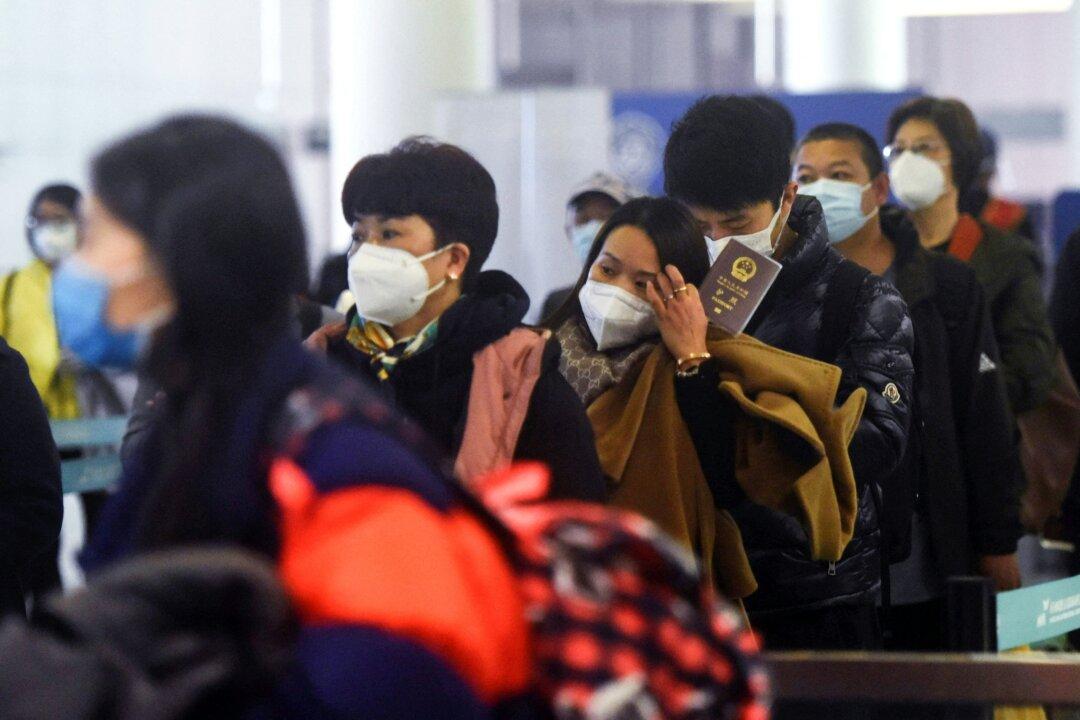China’s communist regime has halted the issuance of short-term visas to South Korean and Japanese nationals in a tit-for-tat move against nations that have imposed COVID-related entry restrictions on travelers arriving from mainland China.
The move came after Chinese Foreign Minister Qin Gang expressed concerns about South Korea’s entry rules to his South Korean counterpart, Park Jin, over the phone. Park responded that the rules were based on “scientific evidence.”





